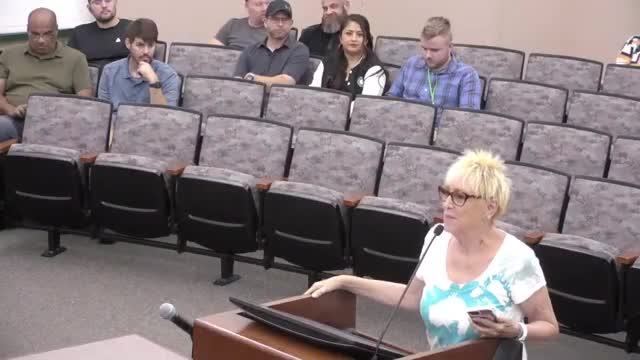Cathedral City Council approves cannabis ordinance amid resident odor complaints and industry assurances
Get AI-powered insights, summaries, and transcripts
Subscribe
Summary
Council approved on consent a second-reading ordinance updating cannabis tax, licensing, zoning and enforcement rules after public comment focused on odors from a nearby cannabis manufacturing facility and industry representatives described mitigation steps.
Cathedral City’s City Council on Oct. 22 approved, on the consent calendar, a second-reading ordinance amending multiple sections of the Cathedral City Municipal Code to update cannabis tax, licensing, zoning and enforcement provisions while taking public comment on odor complaints linked to a nearby cannabis manufacturing facility.
The ordinance — listed on the consent agenda as item 3f and described in staff materials as amending chapters 3.48, 5.88, 9.108, 13.24 and section 9.30.03 of the Cathedral City Municipal Code — was approved by a motion from Mayor Pro Tem Tim Gregory and seconded by Councilmember Gutierrez. The roll call vote was recorded as all ayes.
Residents and neighborhood advocates urged stricter enforcement and raised health concerns during the public comment period. Mary Ellen Muir said the council should not move immediately to enforcement but “give[] a business an opportunity to correct the issue before we get into enforcement.” Other residents described ongoing odor events they said worsened quality of life. Larry Reed told the council he believes the facility’s chemical emissions may have contributed to new, violent nightmares he experienced after returning to Cathedral City and urged the council to “order the closing of the Ramon cannabis drug manufacturing facility under the authority of its current CUP [conditional use permit].”
Representatives of the cannabis manufacturing operator, identified in public remarks as C4 (transcript references "c 4 industry" and the facility address at 69375 Ramon Road), said they are installing additional controls and monitoring and disputed some community characterizations. The facility’s operations specialist (transcript: Raja Lateu) told the council the company has implemented “the best odor control that we can offer” and uses “the highest quality carbon filters throughout the entire facility.” He said the company is participating in process-improvement training with College of the Desert and that the operation contributes tax revenue and local programs.
Company staff and a separate industry group representative also described investments in monitoring and process improvements. David Bernard, a representative who said he personally reviews odor complaints, said the operator installed a monitoring system that costs about $100,000 per year and expects to have additional filtration installed within about four weeks. Scott Russick, president of the Coachella Valley Cannabis Alliance Network, asked the council to consider excluding dispensaries, labs and distribution businesses from any broad odor provisions because, he said, complaints have focused on cultivators.
Council members did not discuss a separate enforcement action at the meeting; the ordinance proceeded on the consent calendar along with other items. City staff earlier had published the ordinance text and a staff report describing the proposed amendments and the public comment process.
The council did not adopt any immediate closure or emergency enforcement action during the meeting; speakers requesting regulatory or permit action were told to work with city staff for follow-up. The council’s approval on consent advances the ordinance to finalization per the city's normal ordinance process.
The discussion combined public comment and industry responses; several speakers emphasized community impacts while company speakers emphasized mitigation investments and the facility’s economic contributions.
